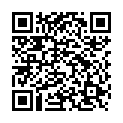|
|
|
| Module code: WiMb21IN120 |
|
|
0BL |
|
6 |
| Semester: 1 |
| Mandatory course: no |
Language of instruction:
German |
Assessment:
Portfolio
[updated 23.09.2025]
|
|
The total student study time for this course is 150 hours.
|
Recommended prerequisites (modules):
None.
|
Recommended as prerequisite for:
|
Module coordinator:
Prof. Dr. Stefan Georg |
Lecturer: Prof. Dr. Stefan Georg
[updated 11.08.2025]
|
Learning outcomes:
After successfully completing this module, students will be able to:
Use prompting techniques.
Conduct AI-based literature searches,
Use alternative AI-supported brainstorming tools,
Use alternative AI tools for language improvement,
Identify and fix the weaknesses of AI-supported text creation.
[updated 23.09.2025]
|
Module content:
1. Self-reflection on prior knowledge in the field of artificial intelligence
2. Introduction to artificial intelligence
3. Basic prompting techniques
4. AI-powered tools for generating ideas and brainstorming
5. AI-supported literature research
6. AI-powered text generation tools
7. AI-powered language improvement tools
8. Manual optimization of AI-supported texts
9. Final reflection on the opportunities and limitations of AI-assisted writing
[updated 23.09.2025]
|
Teaching methods/Media:
Moodle-based online course
[updated 23.09.2025]
|
Recommended or required reading:
Brommer, S., et al. (2023). Wissenschaftliches Schreiben im Zeitalter von KI gemeinsam verantworten (Hochschulforum Digitalisierung beim Stifteverband für die Deutsche Wissenschaft e.V., Hrsg.). Edition Stifterverband. https://hochschulforumdigitalisierung.de/wp-content/uploads/2023/11/HFD_DP_27_Schreiben_KI.pdf
Buck, Isabelle: Wissenschaftliches Arbeiten mit KI (2025). utb.
de Witt, C., Rampelt, F., & Pinkwart, N. (Hrsg.). (2020). Whitepaper „Künstliche Intelligenz in der Hochschulbildung“. https://doi.org/10.5281/ZENODO.4063722
Hochschule für Technik und Wirtschaft Berlin. (2023b). KI-Verzeichnis & Angabe von KI-Tools als Quellen/Hilfsmittel. Handout: Eigenständigkeitserklärung & KI-Verzeichnis. https://www.htw-berlin.de/fileadmin/HTW/Zentral/LSC/Formulare/Eigenstaendigkeitserklaerung_KI_HTW_20230823_LSC_OER.pdf
Kremb, M. (2023). Lesen, schreiben, rechnen, prompten. WirtschaftsWoche Heft 26/2023 vom 23.06.2023, 26, 38.
Salden, P., & Leschke, J. (Hrsg., 2023). Didaktische und rechtliche Perspektiven auf KI-gestütztes Schreiben in der Hochschulbildung. Zentrum für Wissenschaftsdidaktik der Ruhr-Universität Bochum. https://doi.org/10.13154/294-9734
Schindler, K. (2023). ChatGPT oder Überlegungen zu den Veränderungen des Schreibens in der Schule. https://doi.org/10.18716/OJS/MIDU/2023.2.5
Theisen, M. R. (2023). ChatGPT: Risiken, Gefahren und Chancen in Lehre und Forschung. WiSt – Wirtschaftswissenschaftliches Studium, 52(12), 17–23. https://doi.org/10.15358/0340-1650-2023-12-17
[updated 23.09.2025]
|

